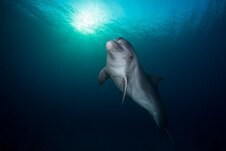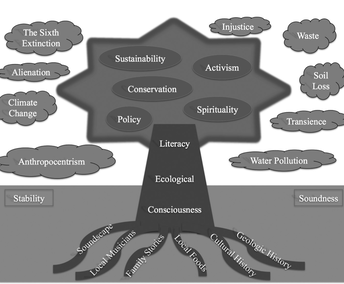
Trees talk. Trees sing.
What I mean when I say is that trees, in some way, converse with one another. The German forester, Peter Wohlleben, wrote a successful book (“Hidden Life of Trees: What they Feel, How they Communicate”) on the interconnected lives of trees living in a woodland. (https://www.smithsonianmag.com/science-nature/the-whispering-trees-180968084/) “Trees are far more alert, social, sophisticated—and even intelligent—than we thought.” Using evocative language, Wohlleben discusses “two massive beech trees growing next to each other. … ‘These two are old friends,’ he says. ‘They are very considerate in sharing the sunlight, and their root systems are closely connected. In cases like this, when one dies, the other usually dies soon afterward, because they are dependent on each other.’”
Trees are communal, forming alliances with plants of the same and different species, evolving interdependently, and communicating through what some call “the Wood-Wide-Web,” using chemical and hormonal signals sent through networks of mycorrhizal fungi belowground; sending distress signals, using the network to “suckle their young” growing nearby, and sharing nutrients, and are even (observing a huge stump felled at least 4 centuries beforehand, green with chlorophyll) “reluctant to abandon their dead, especially when it’s a big, old, revered matriarch.”
Trees also communicate through air, using pheromones, such as when, in the savannas of sub-Saharan Africa, the wide-crowned umbrella thorn acacia sends out ethylene gas to notify nearby trees of feeding giraffes. And giraffes in some way know the trees are talking to one another, sensing the wind to decide which direction to walk, and how far, before grazing on another acacia.
The natural world is brilliant. Non-human life is brilliant.
A music lesson idea:
After learning how trees communicate, direct students to close their eyes and imagine they’re using an under-earth network of fungi, or the winds in the air to communicate with one another. Invite them to sing pitches—a wordless song of a tree—communicating wellbeing, or distress, communicating nourishment, concern, and/or love. Record the song and play it back for students. They may choose to learn some of the parts they improvised, or create new drones, melodies and harmonies on additional attempts at improvising the woodland. After doing a series of these improvisations, a composition might emerge, and students can be directed to add movement. How would a forest dance? They can take this prompt literally or take creative license. What visual art might the class create? Would they create backdrops? Masks and costumes? Would they create a poem or a narrative? A play?
Perform their composition of a living, communicating woodland for the community, making them aware of the fullness of tree-life, and challenging development projects that needlessly fell trees.
There are several such projects going on in my own community now.
DS
Link to image: https://commons.wikimedia.org/wiki/File:Giraffe_koure_niger_2006.jpg


 RSS Feed
RSS Feed
